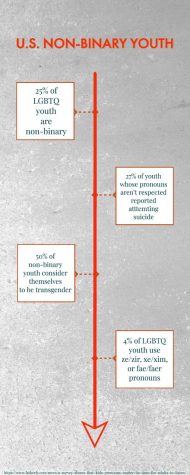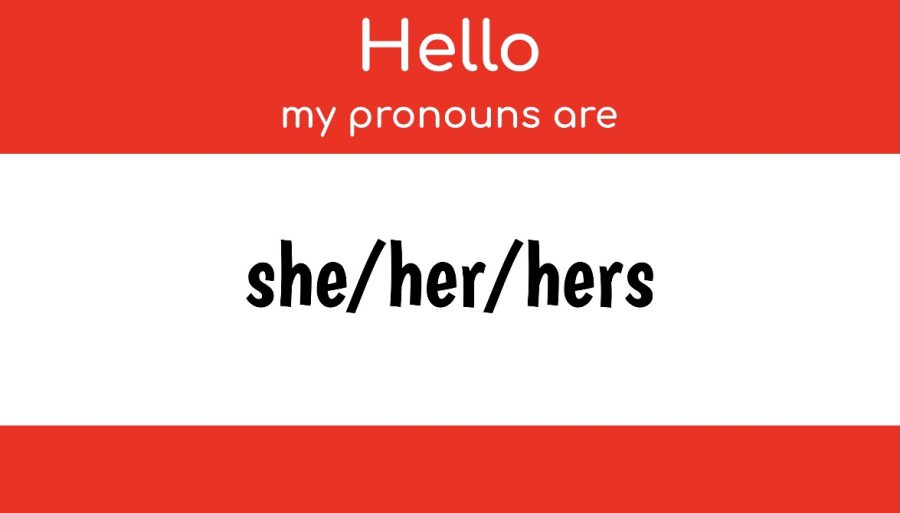A student’s highschool years are arguably the most vital time for learning about themselves and their identity. Students have a right to be addressed and labeled as they choose and announcing their pronouns can simplify that process.
Having experiences that teach them who they are while also navigating academics and extracurriculars can prove to be very challenging for students – but also very rewarding. Deciding how they want to be addressed in alignment with their identities can be difficult for some students if they are still in the process of self-discovery.
The amount of time and thought that goes into the decision of how to identify is extensive. Because of this, it is imperative that the schools prioritize creating a comfortable environment that encourages students to announce their preferred pronouns.

While announcing pronouns when introducing oneself is highly common at universities, there are very few highschools and small-town schools in Iowa where it is routine for students and faculty to clarify their pronouns. This lack of uniformity can be detrimental to the comfort of students who want to announce their pronouns to their peers.
Junior Oliver Gooch discussed how making the sharing of pronouns more common in high school could be beneficial to students’ comfort when working with peers. “Sharing pronouns more commonly in high school, and even middle school, would help students get along with their peers and dissipate any discomfort or dysphoria that is caused by the wrong pronouns being used,” they shared.
Gooch also mentioned h
ow they have personally been affected by this issue. “For example, I use they/he/she pronouns. Most of the time I don’t care which one people use, but some days I really do, and people using the wrong pronouns can really mess me up. I try to wear pronoun pins or bracelets to indicate which pronouns to use that day and vocally advocate for myself, but it’s difficult.”
Unfortunately, the statement of pronouns is not a common practice in high schools yet. While high schools may be behind in this movement, it appears that it is more common for staff and students to state their pronouns in the closings of emails or when they are introducing themselves to new people at universities.
The University of Iowa is on
e example of a school that has made sharing preferred pronouns a common practice. Students can fill out a space with their preferred pronouns on applications for visits, admission, scholarships and more. Having a space for this criteria on applications that every student fills out makes the practice seem more routine and normalizes it in everyday interactions on campus.
When students see their peers doing something instinctively while interacting with others, it encourages them to incorporate those actions into their own daily interactions. It is vital that our school communities begin to normalize the announcement of pronouns in student introductions so that students who feel the need to clarify their pronouns feel comfortable doing so.
Gooch believes that through this normalization, all students will feel more comfortable in social situations with their peers, and be able to flourish in their communities. “Societally, we need to break through the stigma around using different pronouns and open up new possibilities for our school and the community surrounding it. When you give a kid who is not cisgender the opportunity to express themself, feel safe, and have the respect they deserve in the classroom, they will thrive and be more confident in their identity.”









